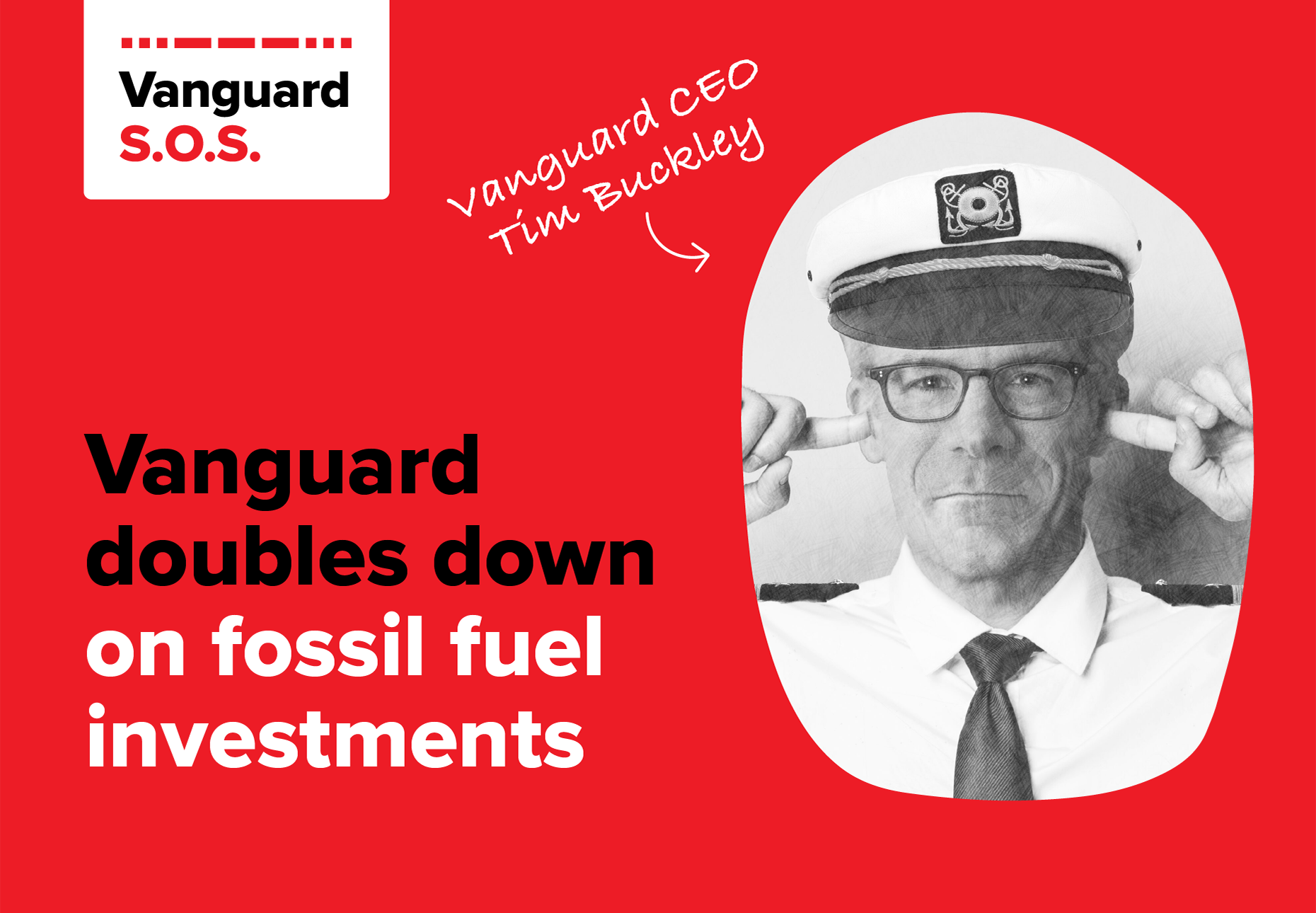Last week, Vanguard announced that, despite being a signatory to the Net Zero Asset Managers initiative (NZAM), it refuses to commit to any specific interim emissions reduction targets. This begs the question as to why the asset manager joined the initiative in the first place. If Vanguard is not just after the perceived prestige of technically being part of the “club,” it is going to have to prove it by doing more than just the bare-minimum.
Instead of a concrete interim plan, Vanguard elected to point to the paltry 4% of its assets under management (AUM) that is currently on track to be net zero-aligned by 2050. Of that 4%, only half is “expected” to hone to a net zero path by 2030. This accounts for roughly 8.5% of the firm’s actively managed funds (a mere $145 billion out of a total $1.7 trillion and a drop in the bucket compared to the $8.1 trillion in AUM that Vanguard manages overall).
To add insult to injury, Vanguard has excluded index funds, which represent the overwhelming majority of its assets, from its NZAM participation. The firm predictably cited “fiduciary duty” as a loophole for excluding index funds, claiming that adding another prospectus would violate that duty.
Fiduciary duty is not a valid reason to limit climate action, however. In fact, the opposite is true – protecting the long-term financial interests of clients requires active mitigation of climate-related risks in the short-term. Vanguard is neglecting the very fiduciary duty it cites by delaying bold action on climate. Paying lip service to climate concerns while carrying on business as usual with heavy emitters not only reflects Vanguard’s hypocrisy and cognitive dissonance, but also its willful contravening of fiduciary duty.
The claim that an asset manager is precluded from engaging in index funds is simply a smokescreen to avoid responsibility. Moreover, Vanguard has multiple engagement options at its disposal beyond changing its prospectus. This includes but is not limited to deviating from the index, lobbying index providers to change the index, or creating new passive funds and transitioning assets over to these funds. To underscore Vanguard’s hypocrisy in this respect, just a few months ago the asset manager suspended purchases of Russian securities across all its indices — proof that with the right incentives, Vanguard can and will engage with its index funds.
Vanguard S.O.S. partner Reclaim Finance developed a 3 point analysis criteria to evaluate NZAM signatories’ decarbonization targets: ambition, alignment, and implementation.
With this announcement, Vanguard has failed on each count.
Ambition: Vanguard’s ambition is literally in the single digits, with only 4% of AUM named as net zero aligned and no clear commitments, just “expectations” for more by 2030 — and only with respect to its actively managed funds. Vanguard has excluded the vast majority of assets under management by the firm from its climate commitments.
Alignment: Vanguard has no policies to stop supporting coal, oil, and gas expansion and its engagement with fossil fuel sector investees is neither time bound nor formalized with clear escalation consequences for non-compliance.
Implementation: Vanguard has no implementation plan to ensure it meets its 2030 “expectation,” and notably doesn’t restrict investments in the worst polluting companies, including no restriction on new expansion projects.
Vanguard’s climate “pledge” pales in comparison to its industry peers. BlackRock committed to an inadequate, but much better 75% of its corporate and sovereign assets, or 58% of its total assets. Several members of NZAM have committed to a full 100%. Other asset managers like AXA IM and even one of Vanguard’s own external fund managers, Wellington, have resubmitted targets when it was clear that the “first draft” wasn’t good enough.
To say that Vanguard shares this “first draft, must redo” imperative would be an understatement. Vanguard has by far the least ambitious, most foot-dragging, bare-minimum participation in NZAM of all the major asset managers.
Vanguard Chairman and CEO Tim Buckley has said that “Vanguard is committed to mitigating climate-related risks that can erode our clients’ long-term investment returns and the achievement of their financial goals.” The firm’s initial NZAM commitment fails by his own measure. Indeed, it seems clear that Vanguard is more committed to mitigating any disruption to the status quo rather than mitigating its contributions to the climate crisis or the long-term risks posed to its clients. Vanguard needs to start over, and do better.
